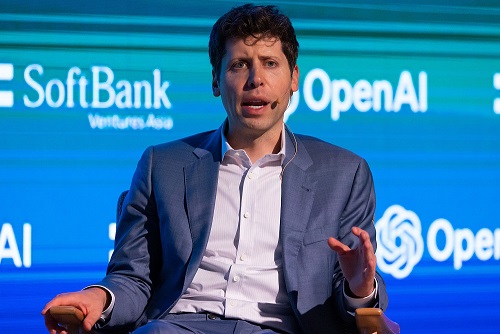How OpenAI Healthcare AI Partnerships Are Transforming Medical Technology and Patient Care

OpenAI Accelerates Healthcare Ambitions with Key Industry Leaders and Strategic AI Innovations
Leading artificial intelligence developers are making a significant move to deepen their involvement in the healthcare sector by onboarding seasoned executives with strong backgrounds in both technology and medical fields. The recent addition of professionals formerly linked to prominent digital and healthcare companies underscores a bold strategy aimed at transforming medical technology through advanced AI.
The organization’s evolving approach centers on close partnerships with medical professionals to devise innovative healthcare solutions. By integrating clinical expertise into the development process, the goal is to ensure artificial intelligence tools not only enhance but also align seamlessly with healthcare workflows and patient needs. This collaborative model aims to amplify the practical benefits AI can bring to diagnostics, treatment planning, and operational efficiency within healthcare environments.
Alongside these collaborations, there is a clear focus on creating proprietary AI software tailored specifically for medical applications. This approach positions the group uniquely as both a provider and potential competitor within the healthcare technology space, given that some clients previously reliant on its foundational models could face new offerings directly from the same source.
Executive Leadership and Strategic Vision
Bringing on board executives with rich experience in digital platforms and healthcare networks signals a commitment to expertise-driven growth in this complex market. Such leaders contribute valuable insights into user engagement, product scaling, and sector-specific challenges. Their backgrounds make them well-suited to navigate the intersection of advanced AI capabilities with the strict regulatory and ethical requirements of healthcare.
This leadership infusion not only accelerates product development pipelines but also enhances partnerships with clinical institutions and industry stakeholders. The blend of prior experience at leading digital ecosystems and specialized healthcare platforms strengthens the operational and strategic capacities of the team tasked with steering these innovations.
Innovating With Clinical Collaboration
One of the fundamental pillars of this healthcare initiative is the direct involvement of physicians and medical specialists in the innovation lifecycle. Such engagement ensures that AI products are designed with real-world clinical challenges in mind, spanning diagnostic accuracy, treatment support, and patient communication. This co-creation model helps tailor artificial intelligence tools to the nuanced demands of healthcare delivery, fostering greater trust and adoption among medical professionals.
Moreover, this method supports the development of AI applications that are both clinically relevant and compliant with industry regulations. By incorporating frontline clinical insights early and continuously, these technologies avoid common pitfalls related to usability and efficacy, ultimately elevating the standards of care and operational productivity through intelligent automation.
Proprietary AI Solutions and Market Impact
Beyond collaborative projects, the strategic creation of exclusive AI-driven applications signifies a transformative business model that extends influence deeper into the healthcare ecosystem. These specialized tools, developed in-house, could address a wide array of clinical and administrative functions including automated medical documentation, patient engagement, and advanced diagnostic support.
This dual role as a developer of foundational AI platforms and specific healthcare applications places the entity in a distinct position. The organization is poised to become a central figure capable of driving innovation while also navigating competitive dynamics with client companies who depend on its models. The careful balancing of collaboration and competition will likely redefine market relationships and accelerate the adoption of AI solutions across the healthcare spectrum.
Advancing AI as a Healthcare Tool
Industry analysts acknowledge the significant potential of AI-powered language and reasoning models to transform healthcare delivery. These systems are increasingly capable of complex data interpretation and clinical reasoning, which can aid in everything from drug development to personalized patient care. The continuous advancement in model training and evaluation highlights substantial improvements in safety, reliability, and clinical applicability.
As these AI tools become more deeply integrated into healthcare settings, they are expected to set new benchmarks for medical technologies. Enhancements in processing clinical information and reducing cognitive and administrative burdens for healthcare professionals promise to improve both patient outcomes and operational efficiency.
Outlook and Industry Perspective
The path forward involves further refinement of AI solutions tailored for healthcare, backed by an infusion of top-tier talent and strategic partnerships. The evolving landscape of artificial intelligence in medicine underscores a growing recognition that next-generation AI applications can become pivotal in managing complex healthcare challenges worldwide.
While the sector remains competitive with numerous players developing AI-driven tools, the approach of combining clinical collaboration with proprietary innovation may define a new paradigm. This strategy aims to foster not only technological breakthroughs but also sustainable integration into the healthcare system, balancing innovation with practical impact and regulatory compliance.
These developments have drawn considerable attention from healthcare leaders and technology analysts alike, who observe that the increasing role of AI in healthcare could soon transform patient care standards and medical research methodologies globally.
For those monitoring shifts in medical technology and AI deployment, this strategic move represents a significant milestone, potentially reshaping the competitive landscape and accelerating the adoption of intelligent health solutions that benefit providers and patients alike.
